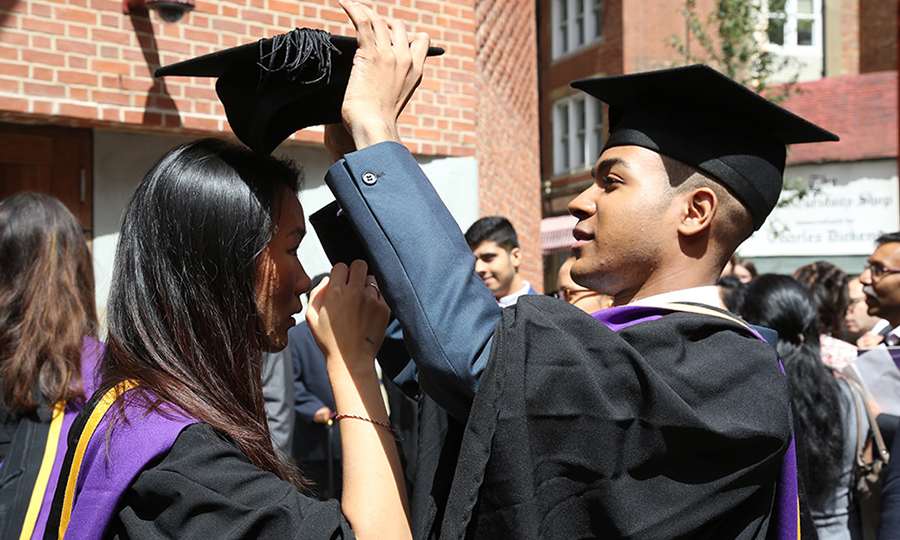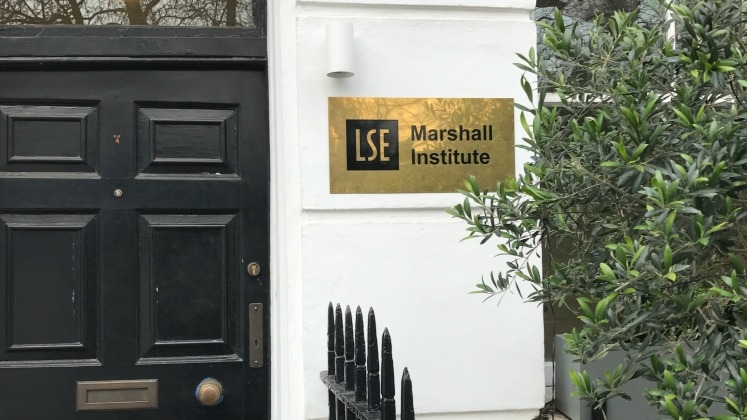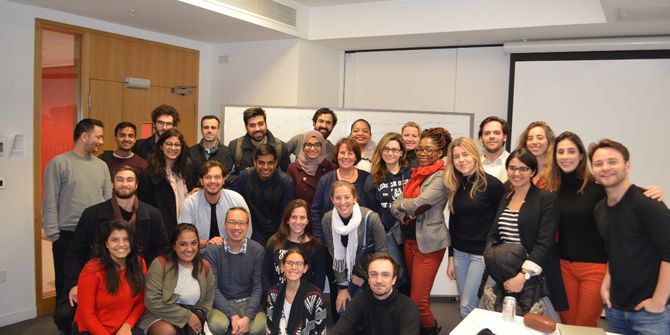LSE’s Global Master’s in Management is the only MiM programme in the world to offer international exchanges with a choice of 41 leading business schools worldwide. In the second year of the programme students can choose between two international options: the CEMS Master’s in International Management double degree with 31 partner schools worldwide, or the MBA Exchange term with 10 partner schools in the US, Europe and Asia.
We interview Dr Christine Cote, Academic Director for the CEMS double degree and the MBA Exchange, to find out more about these two exciting options.
What are the major differences between CEMS and the MBA Exchange for Global Master’s in Management students?
“The first thing I would say is that both are really wonderful options for the GMiM students. There are some similarities, in that both options involve travelling abroad and studying at one of our leading partner schools for a term in the second year of the GMiM programme. However there are definitely some major differences.
The CEMS programme is quite different in that students graduate with two degrees – they have the Global Master’s in Management from LSE, and they also graduate from the CEMS Master’s in International Management. The CEMS degree is formed of a common curriculum across all of the member schools, with a consistent level of quality throughout. They have the chance to study abroad, with a selection of really top-line schools from countries around the world – except for the US, which the CEMS network doesn’t cover.
One of the biggest things for CEMS students is that they get access to an incredible network, not only from the school which they go to abroad, and the students and alumni from CEMS who visit LSE, but also from the whole network of 30 schools worldwide which is available to them as a member of the CEMS community. Also on the corporate side, CEMS is a consortium of corporate and social partners who are global businesses across a variety of industries, so they have that added network as well.
The other thing that holds them together is a common set of values – as students they sign up to a set of values that corporate partners and social partners also buy into, related to integrity, responsibility, ethical behaviour and diversity. The students are quite keen on that, and it permeates the relationships and the work opportunities they pursue.
The MBA Exchange is a term abroad, and what makes it special is its focus on really fantastic top schools in the US, Europe and Asia. This year we have a whole series of Ivy League schools countrywide across the US that have been included.
This programme is a better fit for students who come into the GMiM programme with more work experience, because generally they need to have 12 months’ experience to do the MBA Exchange. It provides a practical, case-based approach to complement the critical and theoretical approach to learning that they’ve had from LSE. They also come out of this with a fantastic network, very much focused on the school which they attend.”
What are the most important things you think students will take away from the opportunity to study abroad for a term?
“In both cases with the CEMS and MBA Exchange, students are going to be expanding their network – whether it’s within the Ivy League school or top school they attend, or globally through CEMS.
For both programmes, the chance to study abroad provides a compliment to the style of teaching at LSE. There is much more of a business school focus, even in many of the CEMS schools. We’re very analytical and theoretical in our approach here, which I think the students appreciate, but it’s nice to compliment that with a more practical approach.
I also think it helps them to become global business citizens having this opportunity to study elsewhere, and helps with their ability to adapt to different cultures – these are important things that they will want to take into whatever career they pursue. Often both of these opportunities to study abroad can lead to an international career, perhaps through the contacts that they make through either of the programmes. It’s all about getting comfortable in adapting to different cross-cultural environments, which I think is a real benefit.”
What’s valuable about joining an MBA classroom in the MBA Exchange?
“At our 10 partner business schools in the US, Europe and Asia, a lot of the students will be older and more mature, and they might have quite a lot of work experience, so I think our students can benefit from being in that environment and learning from those students.
They also learn to adapt more on their feet than they would in the LSE classroom, and it’s much more interactive because of the case-based approach. Often the Socratic method is taken where you may be called on in class to answer questions related to the case, so you really have to come prepared. Some classes at LSE are also focused like this, but the MBA Exchange will give you much more experience thinking on your feet.”
What do CEMS students gain from the global network of students, alumni and corporate partners?
“The network consists of alumni, corporates and social partners, so I think there are a variety of benefits. Students join this network for life so can have lasting relationships, but also the ability to go to any country in the world and link up with other graduates from the CEMS programme even if they haven’t already met. There’s a really strong understanding and connection between people within the CEMS community, so that’s of huge importance especially if you’re pursuing a global career – you know that any city you go into you’re going to find some CEMS graduates who will be talking the same language, and I think that can help in business dealings and for career opportunities on so many fronts.
There are employment benefits as well that come from the corporate and social partners. Around 40% of CEMS students will work with a corporate or social partner at some point during their career, whether it’s through projects at the school or employment opportunities after graduation.
Corporate and social partners also give back to the students a lot through training sessions called Skills Seminars, whether that’s consulting skills or presentation skills.”








Sounds great, “global business citizens”! Once again LSE is leading the way.